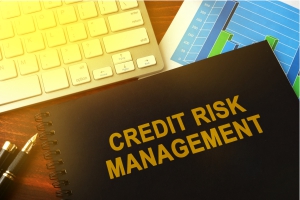As an investor, you need to consider a variety of aspects before you take decisions about where to park your hard-earned savings. If you are thinking of investing in debt funds in India, there is one major aspect you need to be aware of and that is credit risk. While you may have read about interest rate risks, credit risk is not discussed as frequently. If you are wondering what is credit risk, the term refers to the risk of incurring a loss owing to the borrower’s inability to repay the loan or meet the underlying contractual obligations. Let us discuss this in detail.
What Is credit risk?
Suppose you are planning on investing 1 lakh rupees in the corporate bonds issued by company X. Company X is rated BBB-, due to its comparatively poor credit quality. BBB- is still considered investment grade and you have decided on this investment because you are getting a coupon or rate of interest significantly higher than what you would receive from a AA rated paper. you expect to receive coupon payments every quarter, in addition to having your principal repaid at the end of the three-year tenure. However, in the second year of your investment, company X loses a major project and begins to default on coupon payments. The company then files for bankruptcy, and you become the victim of credit risk. This phenomenon is not relegated to retail investment – there are a variety of credit risk funds which invest in low-rated papers in a quest to offer high returns to investors.
Difference between credit risk and interest rates
Credit risk and interest rates are completely dissimilar aspects but they have a direct proportion to each other. As we saw in the case of company X, you have the possibility of earning significantly higher interest rates because of the high credit risk posed by the investment. Therefore, the higher the credit risk, the higher the interest rate attached to the security. This is because investors look for a way to undercut the credit risk they are taking on, when investing in low-rated papers, and this can be done by charging a higher interest rate. If you are a novice investor and come upon an opportunity promising you high rates of interest, you should be wary of the underlying credit risk and assess the investment thoroughly before taking a decision.
Features of credit risk funds
As we discussed earlier, there are several money market funds which invest in low quality assets and these funds are known as credit risk funds. Such funds invest in low-rated papers in an attempt to realise higher gains and also in the hope that the papers may get positively re-rated in the future as such a move would help them earn better returns while reducing the risk. Some of the common features of credit risk funds include its tax-efficient nature, especially for investors belonging to the highest tax slab, thanks to the 20% income tax applicable on long-term investments, and the high liquidity risk posed by these funds. These funds are not as liquid as high-rated funds, because of the risky nature of the investment. Further, credit risk funds depend heavily on the expertise of the fund manager as they are responsible for choosing the right papers and striking the optimal balance between credit risk and interest rates.
If you have money to spare, and do not mind taking on high risk while looking for high returns, then credit risk funds could be a good opportunity for you. However, be careful and maintain absolute caution while picking the fund most aligned with your personal requirements and investor profile.
An investor education initiative by Edelweiss Mutual Fund
All Mutual Fund Investors have to go through a one-time KYC process. Investors should deal only with Registered Mutual Fund (RMF). For more info on KYC, RMF and procedure to lodge/redress any complaints, visit - https://www.edelweissmf.com/kyc-norms
MUTUAL FUND INVESTMENTS ARE SUBJECT TO MARKET RISKS. READ ALL SCHEME-RELATED DOCUMENTS CAREFULLY
Trending Articles
MUTUAL FUND INVESTMENTS ARE SUBJECT TO MARKET RISKS, READ ALL SCHEME RELATED DOCUMENTS CAREFULLY.




















